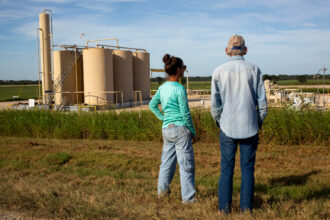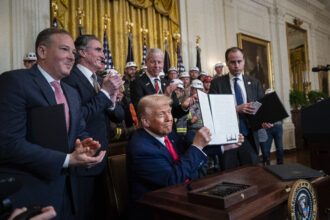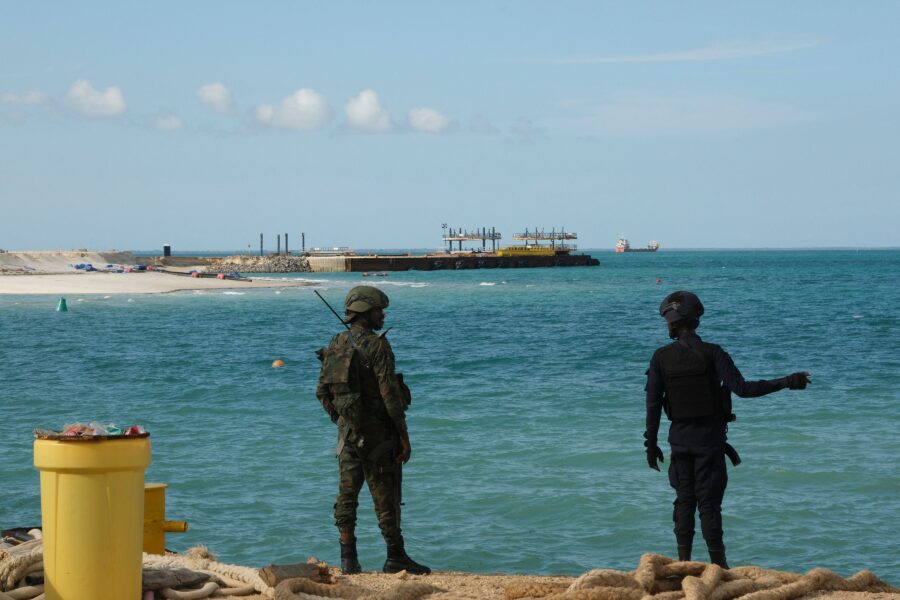BP Plc has paid out more than $5 billion to 204,434 victims of last year’s massive Gulf of Mexico oil spill, fund administrator Kenneth Feinberg said on Tuesday.
The payouts amount to roughly 25 percent of the $20 billion fund, known as the Gulf Coast Claims Facility, which was set up a year ago following the April 2010 spill.
So far, 947,892 claims have been filed from all 50 U.S. states and residents of 36 countries. So far, nearly all of the successful claimants come from four states: Florida, Louisiana, Alabama and Mississippi.
“The Gulf Coast Claims Facility has largely succeeded in its primary objective: to compensate those individuals and businesses who can demonstrate financial harm due to the oil spill,” according to a report by the fund released on Tuesday.
Criticism
While the fund touts its progress, Feinberg and BP face persistent criticism from individuals, several state attorneys general and community groups who believe payouts are being made too slowly and that some spill victims with valid claims are being turned away.
Critics also contend that the fund is pressuring claimants to accept small amounts now, in exchange for their agreement not to sue BP and its partners later for more.
Tuesday’s report acknowledged problems. “The compensation program has not been perfect,” it said, “but several midcourse corrections have been made.”
Lawyers handling litigation for hundreds of individuals and businesses in the federal court in New Orleans say victims might be better served by suing BP and its partners.
In a July 25 court filing, they asked presiding U.S. District Judge Carl Barbier to appoint a special master to oversee the BP fund’s activities, saying the claims process violates the federal Oil Pollution Act.
In July, Mississippi Attorney General Jim Hood sued Feinberg to force the release of documents filed by claimants in that state. Hood said he wants to ensure that claimants are being compensated fairly.
Feinberg Defends Fund
BP and Feinberg say the fund’s activities comply with the law. In an August 18 court filing, Feinberg said federal courts have no power to oversee the claims process, and that a special master would cause “confusion and delay.”
“Any reasonable, objective person genuinely interested in the welfare of those damaged by the spill would acknowledge and commend the extraordinary scope and speed of [the fund’s] accomplishments,” Feinberg said.
Anthony Buzbee, a Houston-based lawyer not among those calling for a special master, says he has settled 18 of 19 personal injury claims filed with the fund, for an average of $5 million each. He says he has also settled several hotel claims for more than $5 million each, and has 12,000 other pending claims for clients, including shrimpers, oystermen and property owners.
Barbier has set a February 2012 trial date for those pursuing lawsuits against BP and other defendants. This date also covers a lawsuit against BP by the U.S. Department of Justice alleging civil violations for environmental damage.
About This Story
Perhaps you noticed: This story, like all the news we publish, is free to read. That’s because Inside Climate News is a 501c3 nonprofit organization. We do not charge a subscription fee, lock our news behind a paywall, or clutter our website with ads. We make our news on climate and the environment freely available to you and anyone who wants it.
That’s not all. We also share our news for free with scores of other media organizations around the country. Many of them can’t afford to do environmental journalism of their own. We’ve built bureaus from coast to coast to report local stories, collaborate with local newsrooms and co-publish articles so that this vital work is shared as widely as possible.
Two of us launched ICN in 2007. Six years later we earned a Pulitzer Prize for National Reporting, and now we run the oldest and largest dedicated climate newsroom in the nation. We tell the story in all its complexity. We hold polluters accountable. We expose environmental injustice. We debunk misinformation. We scrutinize solutions and inspire action.
Donations from readers like you fund every aspect of what we do. If you don’t already, will you support our ongoing work, our reporting on the biggest crisis facing our planet, and help us reach even more readers in more places?
Please take a moment to make a tax-deductible donation. Every one of them makes a difference.
Thank you,











